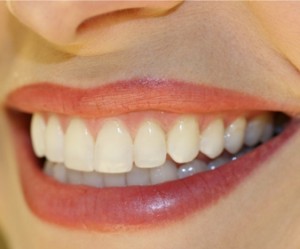According to recent research by the American Dental Association, approximately 80 percent of Americans will develop some form of gum disease during their lifetime. These staggering statistics, coupled with the fact that the disease can lead to major tooth loss and, in extreme cases, serious heart-related issues, underscore the importance of being proactive when it comes to treating this infection of the mouth. The following are eight tips to alleviate the symptoms of gum disease.
Start Preventive Practices Early
The earlier good brushing, flossing, and oral hygiene habits are instilled in an individual, the better. For children, this means getting them in the habit of brushing with a fluoride-based toothpaste regularly, ideally after each meal, as soon as it is age appropriate to do so.
Flossing Is Key
Dentists agree that the number one thing you can do to promote healthy gums is to floss daily, preferably after each meal and before brushing. Flossing is crucial to removing harmful bacteria in between your teeth that can build up and affect your tooth enamel and, eventually, your gum line.
Brush Three Times a Day
Although this tip may seem obvious, there are a surprising number of people—adults included—who simply don’t adhere to this Golden Rule of tooth care.Yet, studies show that, along with flossing regularly, brushing after each meal is key to eliminating food particles that can cause decay.

Use an Oral Rinse
Whether you use an over-the-counter fluoride,a dry mouth rinse,or home-concocted remedies such as salt and warm water or diluted hydrogen peroxide, regularly gargling with some sort of oral rinse will help fight—and even heal—infections in your mouth.
Schedule RegularCleanings
While it may seem obvious, scheduling regular dental cleanings is paramount to keeping your mouth healthy and problem-free. Having your dentist do a quick evaluation during these regular checkups will help mitigate any issues.
Know Your Genetic History
Studies show that individuals whose parents have a history of gum disease and dental problems are likely to experience dental problems themselves. Knowing your genetic dental history early on will help you chart a path to prevention and stave off future decay.
Watch Your Diet
You are what you eat certainly rings true for your oral hygiene as well. Indeed, a diet rich in vegetables, fruits, and natural whole grains will not only transfer to a healthy body, but teeth and gums as well.
Keep Moving
Like other parts of your body, exercise is key to promoting healthy and sustainable gums. Indeed, like a healthy diet, exercise affects your body and, therefore, your teeth and gums positively. This factor, along with the previous seven, will help keep gum disease at bay.













